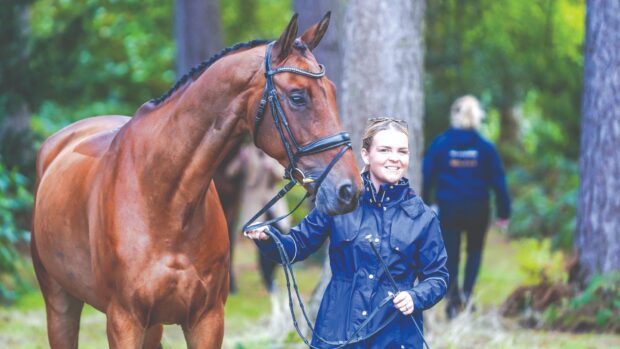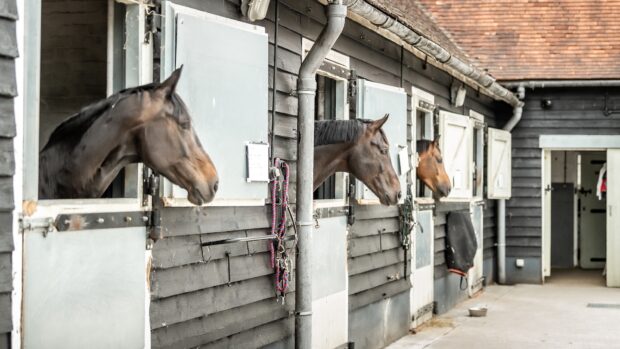THE equestrian industry has to “work smarter”, do its calculations and know its value to remain viable with forthcoming national minimum wage (NMW) increases.
The legal minimum that can be paid to employees is to increase again on 1 April, and British Grooms Association (BGA) and Equestrian Employers Association (EEA) founder Lucy Katan said the implications are concerning for the industry.
The rate is increasing from £6.83 to £7.49 for 18- to 20-year-olds, from £9.18 to £10.18 for those aged 21 and 22, and from £9.50 to £10.42 for anyone aged 23 and over.
For a 23-year-old groom working 60 hours per week, this is an increase of £2,870 per year. Ms Katan also points out that there may be many grooms who will go up an age bracket this year; a 20-year-old currently earning £7.49, and on the same hours, will legally require an £8,392 annual pay rise when they turn 21.
“I’m really worried about this, and I don’t say that lightly,” Ms Katan told H&H. “I don’t know how some yards will afford it.”
Ms Katan added that awareness of the legal right to the NMW in the workforce is “the highest it’s ever been”, and that employers who under-pay staff face having to pay 200% of arrears – and the Government can investigate the past six years.
She said employers must protect themselves by logging all staff working hours, and recommends paying monthly rather than weekly so overtime can be paid, or time off in lieu taken, within a pay period.
But her main message is that some yards and employers have to change their mindset.
“We have to change the way the industry operates,” she said. “We’ve got to modernise and lose the old-fashioned view that the yard has to be perfect at 9am. Less hours of working will reduce the wage bill. That may not hugely benefit the groom who doesn’t get a big pay rise, but the reality could be otherwise that she doesn’t have a job.
“Yards have to change. Even starting an hour later can add up to a big saving. As long as horse welfare isn’t affected – but it won’t be if they’re mucked out a bit later, or the yard isn’t swept to perfection. You have to modernise and professionalise and run a business.”
Coach, judge and rider Ali Dane also runs a livery yard, and has joined the EEA and BGA boards.
She told H&H that although this is a significant increase, employers should be aware that the NMW goes up every year, and expect a significant rise this year owing to the economic situation. She added that this should be budgeted for on top of other rising costs.
“It was inevitable the NMW would go up significantly to reflect the cost of living,” she said. “But on the other hand, clients, whether owners of competition horses or livery clients, need to better understand the cost of keeping horses.”
She said, as H&H has previously reported, that many owners do not know how much it costs to keep horses, and that sometimes neither do the livery yards. The latter need to set a price, that covers all costs including staffing, and makes a profit, and the former have to pay it.
“Yard owners often don’t want to pass on cost increases,” she said. “They feel bad about charging the correct amount, which is crazy. In what other industry do businesses feel guilty about making a profit? But I feel many yard owners almost don’t really want to, which is bonkers.”
Ms Dane said she knows what everything costs her, and she increased her prices from 1 January to cover increases.
“I have six people working for me and everyone’s had a pay rise to reflect the cost of living,” she said. “I think yard owners need to be better at forecasting and understand how the industry is changing.”
Ms Dane said the industry has to understand modern employment and business practices and comply with changed laws.
“We’re not in the 1980s any more and people are more clued up on their rights, as they should be,” she continued. “People want career development but above all, they want to be treated fairly. I think as an industry, we’re not good at investing in people and we need to get better at that, then NMW wouldn’t be such a drama.”
Cheryl Johns, who set up yard directory Livery List followed by an online support group for yard owners, agreed that if yards work out costs, including increased wages, and set their prices to reflect this, the NMW rise should not affect business viability.
“A lot of yard owners tend to pluck an amount out of thin air,” she told H&H. “I’ve always been an advocate for working out costs and setting prices accordingly. They need to be mindful that even if they’ve just put prices up, for those who employ staff, it’s unavoidable that there will be more increases coming. Yard owners need to continuously monitor their costs or they’re subsidising other people’s horses.”
You might also be interested in:

Why owners and livery yards must acknowledge the true cost of keeping horses

A change of view could help equestrian business viability *H&H Plus*

Subscribe to Horse & Hound magazine today – and enjoy unlimited website access all year round
Horse & Hound magazine, out every Thursday, is packed with all the latest news and reports, as well as interviews, specials, nostalgia, vet and training advice. Find how you can enjoy the magazine delivered to your door every week, plus options to upgrade your subscription to access our online service that brings you breaking news and reports as well as other benefits.




